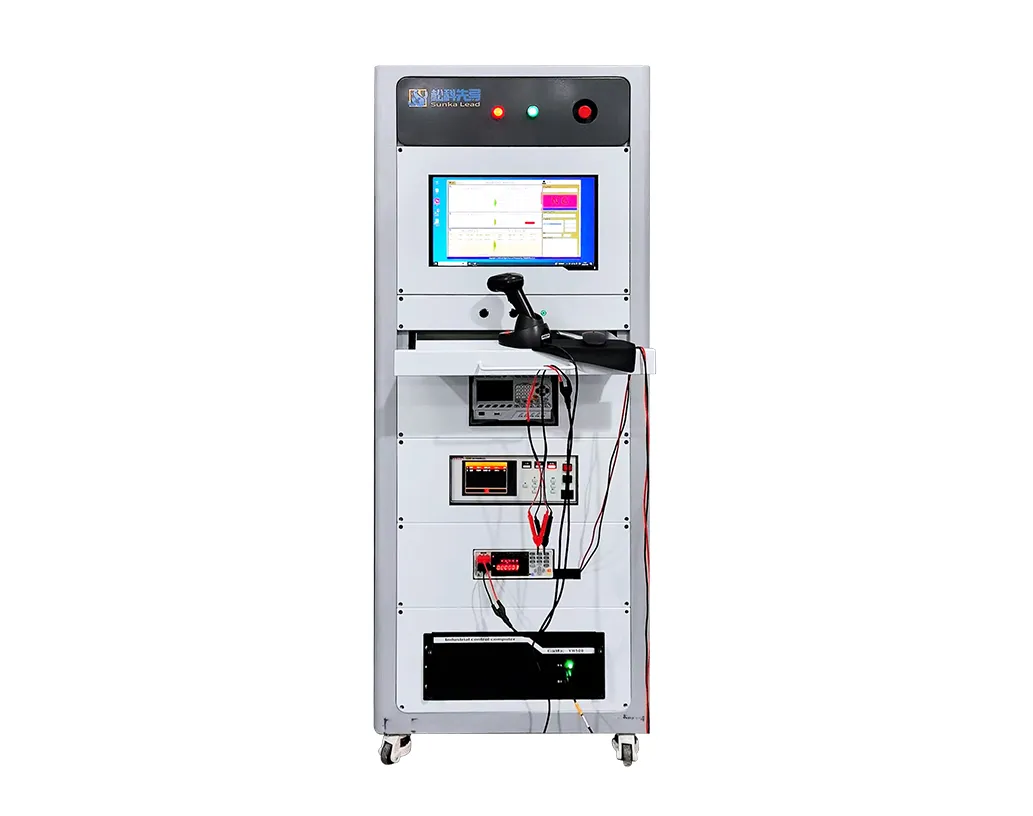In the dynamic landscape of lithium - battery manufacturing, two crucial pieces of equipment play significant roles: the Lithium Battery EOL Testing Machine and the Battery Formation and Capacity Tester. While both are related to battery testing, they have distinct functions, characteristics, and applications. This article aims to shed light on these two essential devices, helping industry professionals and enthusiasts better understand their differences.

The term "EOL" stands for "End - of - Line." A Lithium Battery EOL Testing Machine is designed to perform comprehensive final - stage tests on lithium batteries before they are released into the market. This machine is the last checkpoint in the battery production line, ensuring that the batteries meet all the required quality standards and specifications.
Electrical Performance Testing: It measures various electrical parameters of the battery, such as voltage, capacity, internal resistance, and self - discharge rate. These measurements are crucial for assessing the battery's overall health and performance. For example, a low - voltage reading might indicate a defective cell within the battery, while a high internal resistance could lead to poor charging and discharging efficiency.
Safety Testing: Safety is of utmost importance in lithium - battery production. The EOL testing machine checks for potential safety hazards, such as short circuits, over - voltage protection, and thermal stability. It simulates different operating conditions to ensure that the battery can withstand normal and abnormal usage without posing a risk of fire, explosion, or other safety issues.
Functionality Testing: This machine also verifies the proper functionality of any additional features or components integrated into the battery, such as battery management systems (BMS). It ensures that the BMS can accurately monitor and control the battery's charging and discharging processes, protecting the battery from over - charging and over - discharging.
Lithium Battery EOL Testing Machines are widely used in large - scale battery manufacturing plants. They are essential for ensuring the quality and reliability of batteries used in a variety of applications, including electric vehicles (EVs), electric bikes, portable electronics, and energy storage systems. By performing thorough end - of - line tests, manufacturers can minimize the risk of defective batteries reaching the market, enhancing their brand reputation and customer satisfaction.
A Battery Formation and Capacity Tester, as the name implies, is mainly focused on the formation process of lithium batteries and the accurate measurement of their capacity.
Battery Formation: Battery formation is the initial charging and discharging process that activates the battery's chemical reactions and stabilizes its performance. The formation and capacity tester carefully controls the charging and discharging currents and voltages during this process. It gradually conditions the battery, helping to improve its capacity, cycle life, and overall performance. For instance, during the formation process, the tester can adjust the charging rate to ensure that the battery's electrodes are properly formed and that the electrolyte is evenly distributed.
Capacity Measurement: One of the primary functions of this tester is to accurately measure the battery's capacity. It does this by fully charging the battery and then discharging it at a controlled rate until a specified cut - off voltage is reached. The amount of charge that the battery can deliver during this discharge process is its capacity. Precise capacity measurement is crucial for classifying batteries according to their performance levels and ensuring consistent quality in production.
Battery Formation and Capacity Testers are typically used in the early stages of battery production. They are essential for battery manufacturers to ensure that each battery cell starts its life with optimal performance. These testers are also used in research and development laboratories to study the characteristics of new battery chemistries and improve the overall battery manufacturing process.
Testing Stage: The Lithium Battery EOL Testing Machine is used at the end of the production line, while the Battery Formation and Capacity Tester is employed in the early stages of battery production, specifically during the formation process.
Testing Focus: The EOL testing machine focuses on a comprehensive evaluation of the battery's overall performance, including electrical parameters, safety features, and functionality. In contrast, the formation and capacity tester mainly concentrates on the battery's formation process and capacity measurement.
Test Complexity: EOL testing is more complex as it involves a wide range of tests to ensure the battery meets all quality and safety standards. Battery formation and capacity testing is more focused on the fundamental processes of battery activation and capacity determination.
In conclusion, both the Lithium Battery EOL Testing Machine and the Battery Formation and Capacity Tester are indispensable in the lithium - battery manufacturing industry. Understanding their differences is crucial for optimizing the production process, ensuring battery quality, and meeting the diverse requirements of various applications.




